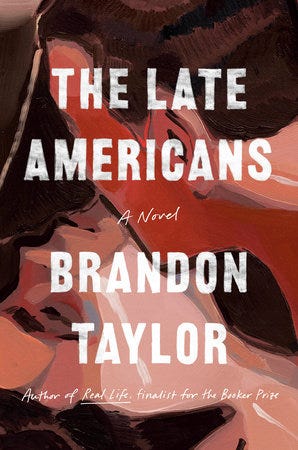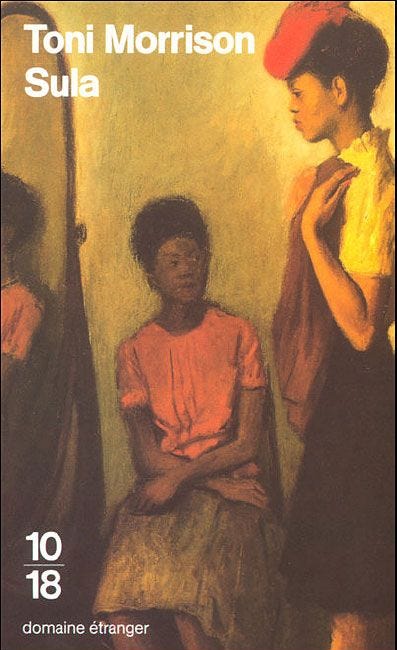
One of the first books I’ve read this year, The Late Americans by Brandon Taylor, mostly takes place within various graduate programs at the University of Iowa. The novel, which reads like an ecosystem of short stories, follows a group of friends in their mid-to-late twenties beginning a new chapter in their lives.
The novel feels stagnant. Character arcs like Ivan’s see no development. Yes, Ivan receives news about a job prospect, or Seamus finally finishes a poem. But these characters don’t grow emotionally for the most part. No one realizes anything. No one gains much clarity. Grad school ends. They disperse. Life goes on. Some, like Ivan, will make more money than before, while others will remain at their class statuses or are still figuring out what will be next.
Instead of character development or plot driving the novel, The Late Americans examines relationships between lovers, family, friends, colleagues, and classmates. Therefore, a novel effectively going nowhere receives texture and tension from the bumps and bruises throughout these relationships. And so, these ripples keep the novel from reading as monotonous.
Focusing on these relationships also works thematically. In a time where young adults see few avenues for financial, professional, and self-improvement—wages have stagnated, social circles have shrunk, and advertisers would rather us remain as shallow and self-involved as possible—all of us who’ve recently graduated with a masters degree have are the relationships we cultivate while in our programs.
Three years after finishing an MFA, I have battled various emotions around young adult stagnancy. Carving time, finances, and energy to further your artistic ambitions without industry connections or structural advantages feels like one of many part-time jobs. Schooling and familial support aided this journey at many turns. But, the dwindling number of positions and shrinking resources in arts-related careers means these efforts don’t bring the same returns that they might have even five years ago. Like a driver accelerating to push a car out of a ditch, a lot of gas and acceleration is needed just to get to solid ground.
The connections developed throughout this artistic, millennial, post-grad life keep morale from sinking further underground. As happens in Taylor’s novel, sexual, artistic, or platonic relationships provide the structure for my days. The only substantial growth I’ve witnessed between undergraduate and now has been in my relationships, as I’ve not had the resources to devote to much else. My sneaky suspicion is that peers with more stable careers as mine might see the same trends that have accelerated with the global pandemic.
More of my peers than expected have gotten married or engaged, settled down with pets or partners, and grown their families. Yes, I’m at the age where people begin building families. And also, so many folks have shared the effects quarantine had on their understanding of their relationships, communities, and families.
While deepening connections does lead to a more satisfying life, I wonder if we have the tools to make our relationships count anymore. The connections that bind the grad school friends in The Late Americans are shallow, exploitative, or violent—hookups, roommates, workshop peers, colleagues, and dance partners. One character, a pianist, dates a dancer turned finance major but sleeps with a married man. Another character sleeps with his landlord whenever he needs a break, and a third character has a sexual encounter that midway turns into violence with a coworker. Even when characters in relationships try to talk through their issues, as Ivan and Goran do, it’s hard to know if either person knows how to listen or if each person only hears a narrative they’ve convinced themselves of. So, we’re left with a problem: all we have are relationships, but we don’t know how to be in communities.
In my friendships, I often assume my logic or reading of a situation should be the definitive one. Therefore, I cannot lean into their perspective when friends or family confide in me about my behavior, workplace conflict, or other issues. Often, I am angry with my sister for not acting and thinking as I would when deciding how many leftovers to take to work for lunch. This inclination towards narcissism can lead to an abundance of shallow friendships where we orbit around each other but never truly get to know the other person. But, we are not as likely to buy products we don’t need to solve made-up problems in a society where depth, empathy, and connection are valued more than transactional interactions.
If you liked this post read:
It is what it is
Excuse the brief hiatus as I furiously tried to clear my desk of things I owed folks. I am still trying to figure out how to work on this blog and will need to work on how to put this into my schedule. I had been meaning to write this on finally finishing




